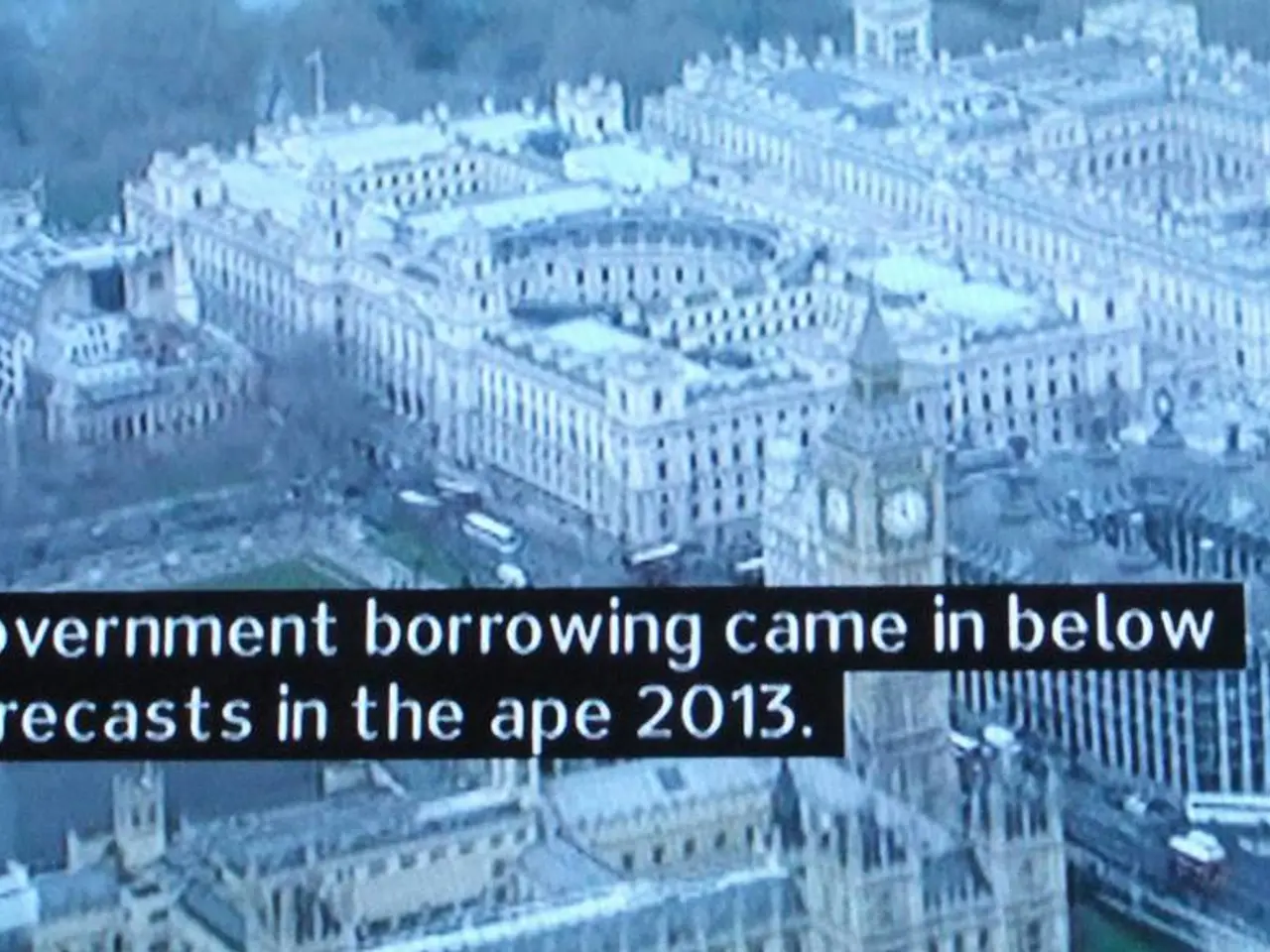Israel Intends to Seize Gaza City: Exploring the Aftermath - Potential Capture of Gaza City by Israel: Exploring Potential Repercussions
Israel's decision to occupy Gaza City has sparked widespread criticism from the international community, with concerns focusing on humanitarian issues and legal implications. The objective of this move, as stated by Prime Minister Benjamin Netanyahu, is to disarm Hamas, return all hostages, demilitarize the Gaza Strip, establish military control, and establish a civil administration not under Hamas or the Palestinian Authority.
The UN's top human rights official, Volker Türk, has strongly urged Israel to halt the military takeover, stating it contravenes international law and could lead to "more massive forced displacement, more killing, more unbearable suffering, senseless destruction, and atrocity crimes." The UN Secretary-General António Guterres has called the decision a "dangerous escalation" that risks deepening the humanitarian catastrophe and endangering more lives, including hostages.
European leaders, notably Germany, have condemned the decision, highlighting the risk of catastrophic humanitarian consequences. Germany has suspended all military exports that could be used in Gaza, signaling serious concern about the escalation and its impact on civilians. European leaders generally urge Israel to refrain from annexation moves and emphasize humanitarian responsibilities.
The military operation is expected to last months and involve the displacement of around 1 million civilians, with the IDF issuing eviction orders. The escalation risks prolonging the conflict, increasing death tolls and destruction, and complicating efforts for peace or a two-state solution.
Israel's government, led by Prime Minister Netanyahu, frames the occupation as necessary to defeat Hamas, disarm the group, return hostages, and establish a new civilian government. Netanyahu has expressed an aim to control Gaza for security reasons but claims no intention of permanent occupation, instead wanting to "hand Gaza over to Arab forces" to govern afterward.
The decision to escalate fighting could be a negotiating tactic to put pressure on Hamas in the stalled negotiations on a ceasefire, as suggested by Israeli politicians and media speculation. However, the potential conflict implications are significant, with the large-scale ground offensive in urban areas carrying increased risks for Israeli soldiers and potentially further undermining public support for the war.
Some countries are considering sanctions against Israel due to the catastrophic situation in Gaza. Germany, while rejecting sanctions, is still undecided about its further course of action in the Gaza conflict. The humanitarian situation in the Gaza Strip, which has been under war for 22 months, is described as catastrophic, with a risk of famine and already overcrowded refugee camps.
Residents are to be evacuated to refugee camps in the center of the Gaza Strip by early October, where the hygienic and health conditions are considered health-threatening, with aid organizations repeatedly warning of disease outbreaks. The shock in society over fallen soldiers this year has already been great, and additional losses on the Israeli side could further erode support for the war.
A further split within the political camps could be the consequence of Israel's decision. Prime Minister Netanyahu faces a political dilemma regarding the future of the Gaza Strip, with his coalition partners demanding the occupation of the entire territory and the expulsion of Palestinians, while opposition parties vehemently reject this.
The military leadership has expressed concerns that advancing into targeted areas could endanger and potentially result in the death of hostages. An escalation of the fighting could lead to increased international criticism and potentially diplomatic isolation for Israel. It remains unclear how Israel's latest decision will affect Germany's behavior in the Gaza conflict. There are still approximately 50 hostages in Gaza, with around 20 believed to be alive.
- despite the Commission's efforts to maintain the EU's relations with Central and Eastern European countries, the ongoing war-and-conflicts in Gaza have prompted European leaders, such as Germany, to express concern about the catastrophic humanitarian consequences and the potential for diplomatic isolation.
- Amidst the political implications of Israel's decision to occupy Gaza City, the United Nations Secretary-General António Guterres has emphasized the significance of politics, general news, and humanitarian concerns, characterizing the decision as a "dangerous escalation" that risks deepening the humanitarian catastrophe and endangering more lives.







